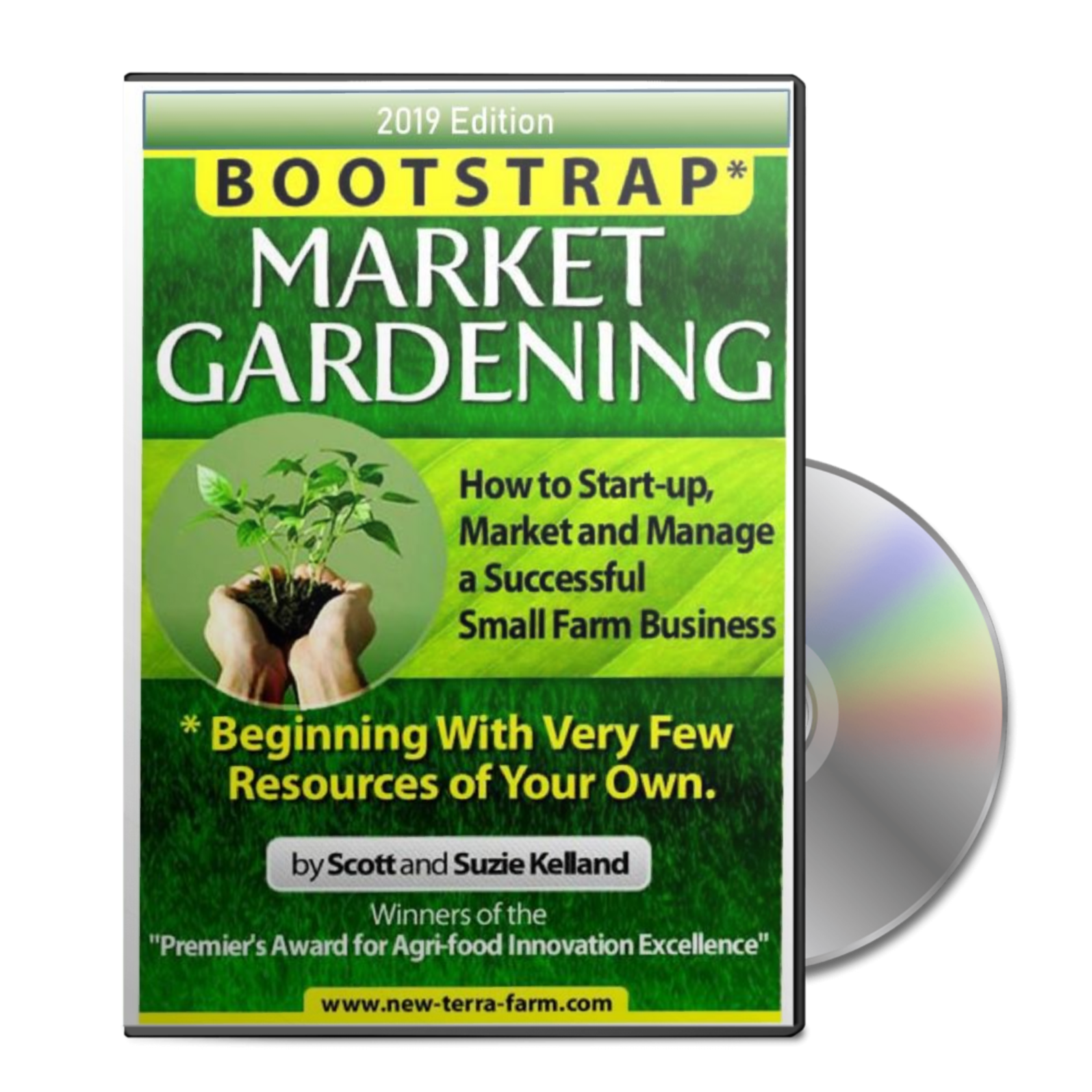Starting a Market Garden: Some Tips for the New Grower
Money grows in your garden! If you like getting your hands dirty, that some point you've probably thought about starting a market garden. It is a great business, and can be very satisfying.
It can also be frustrating and exhausting. The difference is in how you approach it. Here's a few things I've learned about gardening for a living that will help point you in the right direction.
 Man, I LOVE my market garden!
Man, I LOVE my market garden!Figure out 'how much' before 'how'.
What are your reasons for starting a market garden? Do you want to
create a second part-time income? Do you want to give up a job you don't
like? Do you just like gardening and think that getting paid for it
would be great? Do you NEED an income and other prospects look poor?
There's no wrong answer here, but you need to understand your goals and
your limitations before you can develop a plan to get there.
If
you are an absolute beginner, it's unlikely you will make a full-time
living from market gardening the first year. I don't know anyone didn't
'grow' into this business over time. It is possible to make an extra $5,000 or $10,000 in your beginning year, if you follow a good plan.
Now figure out your market. Small growers don't have the luxury of growing stuff they can't sell; in fact it's better to sell it before its grown, by employing a
Community Supported Agriculture (CSA) model or something similar.
Or start by recruiting a few friends and neighbours and offer to be their
gardener, in exchange for some help with start-up costs; they will get a
share of the veggies from the garden. Starting a market garden this way
limits your risk.
Only grow what the market wants. The point of starting a market garden is to fill a need;
so the corollary of only growing what you can sell is to make sure you
know what your market wants! ASK you customers what they want you to
grow for them, visit local markets and see what the 'hot sellers' are.
DO NOT bet the farm on some exotic item that 'you are sure' will be hot
seller because nobody else is growing it. If nobody else is growing it,
the most likely reason is there's no local market!
Acquire Skills Before Stuff
Invest in learning, not hardware. You most likely don't need to
buy a tractor, or a manure spreader, or a bed shaper to get started.
Rent or borrow equipment or hire out the heavy work. Your goal (at a
minimum) is make sure your income from your first-year market garden
will cover your expenses. Keep expenses down any way you can.
So spend your time and money in learning how to be a better grower, buy
some books, take a small business management course, visit local growers
and farmer's markets.
Take notes and pictures. Make note of what works and what doesn't
as your garden year progresses. In particular keep track of things like
germination rates and yields of particular cultivars, which varieties
do well in heat, or cold, or wet, or drought. Do some experimenting with
cultural practices like inter-planting and companion planting, and see
which ones are worth the effort.
You need to keep notes because you will NOT remember the
thousand-and-one details of your garden when it comes time to answer the
question "how does my garden grow"? We no longer grow some crops
because they turned out to be more trouble than they were worth.
If you are starting a market garden, remember 'plan' is a verb
Business success is not an accident. Successful businesses have a handle on planning, marketing and management before they open their doors. You need to do the same.
This means setting goals for sales and income, figuring out how you will
sell your goodies, and how and by whom the garden work will get done.
You need a marketing plan, and a cash-flow budget, and a garden plan and
schedule to guide your activities. This is what separates the home
garden from the successful market garden.
Evaluate after your first season. Did you really make money this
first season? Can you account for all monies in and out? Do you know
what worked and what didn't and why? Do you have a plan to do better
next season? And (most important) did you love the work?
Starting a market garden is not for everybody; there's no shame
in giving it a good try and then deciding its not for you (I've left at
least three 'careers' I didn't love.) But if you love it, you can make a
good living.

A fellow grower lost out on $5,000 in her first season because of one simple mistake. Get your FREE Market Garden Starter Guide and avoid this costly error.
Imagine building a profitable and sustainable market garden even on a small property.
Enter your email address and your free report will be sent to you right away.
 Now includes Garden Planner software
Now includes Garden Planner softwareBootstrap Market Gardening, my first Bootstrap Book, shows you step-by-step how to start-up, market and manage an organic market garden based on CSA principles.
New edition includes my Garden Planner spreadsheet. Get Bootstrap Market Gardening here
Or get Bootstrap Market Gardening as part of the Complete Start Farming Pack and SAVE 40%
- Home Page ›
- Bootstrap Market Gardening ›
- Start Market Gardening
Recent Articles
-
Farm grown reviews of products recommended by New Terra Farm
Dec 04, 25 06:26 AM
Find great farm and garden products in my farm grown reviews -
Best Chicken Coop and Accessories for Small Farms and Homesteads
Nov 30, 25 09:18 AM
Looking for the best chicken coop? Here are the top coops, accessories, nest boxes, and gear to build a safe, productive poultry setup. -
Community Supported Agriculture Marketing Ideas To Sell Out The Season
Nov 05, 25 05:18 AM
Authentic Community Supported Agriculture marketing ideas to grow loyalty, boost sign-ups, and sell out your CSA every year








